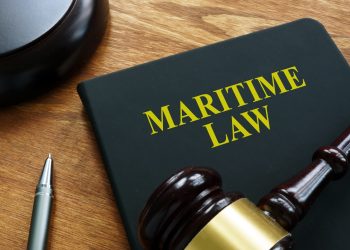The coronavirus outbreak has caused over 2,619 deaths and a major disruption to global trade, since it evolved in late 2019. The following article by Chris Moxon, Senior Claims Executive, and Jamie Wallace, Legal Director at Standard P&I Club, explain the key practical and contractual considerations for shippers arising from the coronavirus outbreak in China.
Members will be aware of the recent novel coronavirus outbreak in China, which has been declared a global emergency by the World Health Organization (WHO).
Although the following information is believed to be accurate at the time of writing, the situation is evolving rapidly and new measures are frequently being put into place. Members are advised to check with their agents and the local correspondents (contact details can be found on the club’s website) well in advance of any call to a country affected by the virus, particularly ports in China.
The Standard Club is guided by the views and recommendations issued by the WHO in respect of this outbreak and advises members to remain vigilant and fully updated with regards to the spread of the virus. More information on the virus itself and the developing situation are available from the WHO website.
Practical considerations
Members proceeding to a port affected by the coronavirus, or to a Chinese port generally, can expect the following issues to arise:
-Crew
- Need for health declarations before berthing
- Monitoring of crew
- Restrictions on substitution of crew
- Restrictions on crew disembarkation
- Need for preventative measures to be taken by crew
- Supply of provisions may be affected
-Ship repair
- Impacted by lack of workers
-Cargo preparation
- Port congestion / port operation
- Slow loading and discharging
- Unavailability / delays in provision of cargo by truck or river
- Delays in or impossibility of delivering cargoes to the loading ports
- Delays at port or subsequently, e.g. due to quarantine issues
- Inability of stevedores to attend on board vessel to assist with cargo operations
Contractual considerations: existing time charters
Owner members whose vessels are ordered, or charterer members who order vessels, to proceed to load or discharge at a port affected by the coronavirus, or at a Chinese port generally, should consider the following charterparty issues:
-Force majeure clauses
The clause needs to be reviewed carefully. Unless there is an express reference to epidemics or quarantines in the charter or a suitable “catch all” provision, issues arising from the coronavirus will not provide an excuse for non-performance of contractual obligations.
For load and discharge port issues, please see the section on voyage charters below.
General points to be kept in mind include:
- Does the force majeure clause at issue specifically reference diseases, epidemics or quarantines as triggering events? If so, the chances of enforcement are greater.
- Did the outbreak of the coronavirus cause the party’s inability to perform? If a party would not have been able to perform even in the absence of the outbreak, it is unlikely that the party will be able to rely on force majeure as an excuse, even if the event falls within the force majeure provisions.
- Note that the question of whether there is a force majeure event may therefore not be the end of the matter, as damages for breach will be to put the innocent party in the position it would have been in if the contract had been performed.
- Is the party able to avoid or overcome the effects of the coronavirus through alternative means? The ability to mitigate the effects of the coronavirus through alternative means cuts against the application of force majeure as a valid defence.
- Did the party comply with any notice requirements? Even if all other elements establishing a force majeure defence are met, it is unlikely that a court or arbitrator will excuse a party’s failure to give timely notice that a force majeure event has been triggered.
By way of example of the treatment of force majeure events by major time charter forms:
- The NYPE 1946, 1993 and 2015 exceptions clauses make no reference to epidemics or quarantine.
- Clause 14(a) of the BALTIME form provides that the vessel shall not be ordered to, and is not bound to enter, “any place where fever or epidemics are prevalent”.
- Clause 27 of the Shelltime 4 form refers to neither party being liable for “loss or damage or delay or failure in performance hereunder arising or resulting from”, amongst other things “quarantine restrictions”.
- The BIMCO sample force majeure clause for time charters lists “epidemics”.
Action points to be taken:
- Review contracts to determine rights, obligations and remedies in the event of diseases, epidemics or quarantines. Particular attention must be paid to any notice requirements.
- Promptly provide notice of a force majeure event to counterparties. Failure to do so can have a severe impact on the ability to invoke the defence.
- Take (and document) reasonable steps to mitigate the impact of the coronavirus. While these steps may prove futile, they are essential if a force majeure defence is to succeed.
-Frustration of the charter
At present, the likely consequence of the coronavirus is, at maximum, a 14 day period of quarantine. Whether that could amount to a frustrating event will need to be considered on the facts, including the length of the charter concerned, but it is thought to be highly unlikely.
The position may change if there is a permanent closure of a port or series of ports.
Frustration is, however, historically difficult to argue as a matter of English law.
-Unsafe port issues
If the charter terms are standard, such that the charterers’ obligation is to nominate a safe port (either express or, in certain circumstances, implied), then the question of whether that nomination is a legitimate one depends on whether the vessel is able to reach, use and depart from the port without being exposed to danger which cannot be avoided by good navigation and seamanship.
In theory, a port affected by the coronavirus could be legally unsafe, but consideration needs to be given to the facts, the risks to which the vessel is exposed, and the contractual provisions.
If an order were to be given today to proceed to a port that is already significantly affected by the coronavirus (such as Wuhan), an owner should consider:
(i) the safe port provisions in the charter; and
(ii) whether the owner can refuse to call there if deemed unsafe under those provisions. Then, depending on the assessment of (i) and (ii),
(iii) the alleged danger to which the vessel is exposed; and
(iv) what steps can be taken to avoid such danger.
Whether or not a port is unsafe is likely to depend on the extent to which the crew is exposed to real danger, taking into account precautions that can be taken. Although there is an argument that exposure to the coronavirus renders the vessel unseaworthy, for example if subsequently quarantined, which could lead to an argument that the port was unsafe, this is thought to be tenuous.
It is more likely that a quarantine period of, for example, 14 days would be deemed a form of delay incidental to visiting an affected port. That would not in itself render the port unsafe.
In short, the position is not clear cut, and will depend on the facts at the time and the charter terms. An owner should not assume that they can assert an unsafe port argument.
-Off-hire
Possible relevant provisions will relate to “epidemics” or similar.
The standard off-hire clauses in NYPE 1946 (clause 15) and 1993 / 2015 (clause 17) refer variously to deficiency of men, or officers or crew. If a large number of crew / officers were ill, and this prevented the full working of the ship, this may be considered as an off-hire event.
Additional wording would be required in the NYPE form to place the vessel off-hire due to quarantine measures taken due to the sickness of the crew, but members should look out for wording such as “any other cause whatsoever” as well as any specific reference to quarantine.
The Shelltime 4 form (clause 21), as well as including deficiency of personnel as an off-hire event, also refers to medical advice or treatment and “any delay in quarantine arising from the master, officers or crew having had communication with the shore at any infected area without the written consent or instructions of Charterers or their agents, or to any detention by customs or other authorities…”.
Absent any specific wording, the vessel will not be off-hire during periods of quarantine caused by a call at an infected port.
If the vessel were to deviate to obtain medical assistance for its infected crew, this may be within the scope of the “deviation” or “put back” provisions in a NYPE charter. Under a Shelltime 4 charter, charterers may be able to put the Vessel off-hire under clause 21(a)(iii).
In all cases, the question of whether charterers are entitled to place the vessel off-hire is likely to depend on the extent to which events arose as a result of charterers’ orders. It is difficult to see how such clauses could apply where the crew member became infected as a result of charterers’ orders, in which case the deviation may not give rise to off-hire unless the owner is deemed to have accepted the risks of calling at an infected port. Where charterers put the vessel off-hire, owners may have a claim for an indemnity for losses arising from charterers’ instructions, but will need to show causation.
Charterers’ position will be stronger where the vessel’s call at an infected port took place before entering into the subject charter.
-Liability under bills of lading
In terms of bills of lading that have already been issued, for discharge at Chinese ports, the biggest risk which owners appear to be facing would be the Chinese receivers not being in a position to accept delivery of the cargo due to lack of manpower, or other events at the port caused by the coronavirus, which they are likely to assert constitute force majeure.
In those circumstances, owners will be looking to their charterers for alternative instructions, and will be seeking compensation or an indemnity from charterers for any loss which they may face as a result of a claim by the cargo interests.
Contractual considerations: entering into new time charters
Failure to meet laycan due to quarantine or unexpected delay at previous port due to the coronavirus
This may give rise to a right of the charterers to cancel the charterparty, and/or to bring a claim for breach of contract, depending on the charterparty provisions.
Some charters, such as the BALTIME form (clause 12), provide owners with a wide exemption from liability, including delay in delivery, except where this has been caused by want of due diligence on their part, or that of their manager in making the ship seaworthy, or by any other personal act, omission or default.
This will not, however, protect owners against all delays in the delivery of the vessel, and, in particular, it will not apply to delays arising out of prior contractual arrangements to which the charterers were not a party, unless it is clear that the charterers should bear the risks of such delays. So, for example, in a situation where the vessel is delayed in delivery due to quarantine under a previous charter, owners could not rely on clause 12 of the BALTIME form (or a similarly worded clause).
-Express clauses
The BIMCO Time Charter Clause for Infectious or Contagious Diseases makes express provision for what will happen in the event of such diseases occurring, and the recommendation is that the clause is incorporated into any new fixtures.
We anticipate, however, that a key issue will be determining what is meant by the term “Affected Area”. This is defined as being any port or place where there is a risk of exposure to the vessel, crew or other persons on board to the Disease (being “a highly infectious or contagious disease that is seriously harmful for humans”) and / or to the risk of quarantine or other restrictions being imposed in connection with the Disease.
Whether or not the coronavirus constitutes a “Disease” within the scope of the clause may also be disputed.
In terms of what is meant by an “Affected Area” it will be necessary to consider:
(i) whether the steps currently implemented in the affected ports are sufficient to ensure that the risk of exposure to vessel, crew or other persons on board is minimised; and
(ii) the extent to which other jurisdictions decide to quarantine any vessel which has been to an affected port, going forward.
The BIMCO Time Charter Clause for Infectious or Contagious Diseases, however, gives the owners a wide discretion as to whether to proceed to, continue to, or remain at, any area which the Master or owners deem to be an Affected Area, in which case they should notify the charterers and may leave immediately with or without cargo on board, after notifying the charterers.
Charterers then have only 48 hours to issue alternative voyage orders, and the owners may discharge any cargo already loaded “at any port or place”. There is an indemnity for owners from charterers, and even if the vessel does proceed or continues to remain at an Affected Area, there is deemed to be no waiver of any rights under the charter, and any additional costs, expenses or liabilities, will be for charterers’ account. It is expressly stated that nothing done in compliance with the clause will be deemed to be a deviation or give rise to an off-hire event.
In addition to considering the inclusion of the BIMCO Time Charter Clause for Infection or Contagious Diseases, members should review the proposed charterparty terms carefully to ensure that any force majeure clause adequately allocates the risk of non-performance in the event of a currently unforeseen spread of the coronavirus. Off-hire provisions need to be reviewed closely as well.
If the coronavirus situation continues, and depending on how other jurisdictions are treating vessels from affected ports, it may become more common or necessary to include warranties that the vessel has not called at an affected area.
-Liability under bills of lading
The BIMCO Time Charter Clause for Infectious or Contagious Diseases requires a similar clause to be incorporated in any bill of lading.
Contractual considerations: existing voyage charters / COAs
Force majeure clause
See the general points regarding force majeure above.
Laytime / demurrage issues
Unless a general exceptions or force majeure clause makes express reference to laytime / demurrage obligations, such a clause will not apply to them.
Where cargo is not available, charterers will not be able to avail themselves of the exceptions to laytime provisions, although some charters, such as Amwelsh 1979, may provide some assistance to charterers at the loadport if they can show that time is lost due to “any cause whatsoever beyond the control of the Charterer affecting mining, transportation, delivery and / or loading”.
ASBATANKVOY is also potentially helpful in quarantine situations, in that clause 17(a) provides that “should the Charterers send the Vessel to any port or place where a quarantine exists, any delay thereby caused to the Vessel shall count as used laytime; but should the quarantine not be declared until the Vessel is on passage to such port, the Charterers shall not be liable for any resulting delay”. It will therefore be important to determine exactly what the position is at any potentially affected ports when orders are given and when the vessel starts on its passage to the port.
In most ports a vessel can be considered to be ready for the purposes of tendering NOR, notwithstanding that free pratique will be required at the port (even where the charter does not provide WIFPON), on the basis that the obtaining of free pratique is a mere formality. See, however, the club’s article dated 31 January 2020, referring to delays in obtaining free pratique.
If obtaining free pratique ceases to be a mere formality, and moves more in line with some of the arrival obligations at US ports where the restrictions are more complicated, and delay is likely, it may no longer be considered a mere formality with the result that a vessel will not be deemed to be ready prior to obtaining free pratique so as to be able to tender an NOR at anchorage.
-Frustration
See above.
-Unsafe port issues
See the general points regarding unsafe port issues in the context of time charters, above.
Owners will generally be considered to have accepted risks relating to a port named or identified by area in a voyage charter at the time of entering into the charter, subject to any express reference to safety.
Under a voyage charter, unless accompanied by a clause permitting deviation, a refusal to proceed to a named port can amount to a breach of contract or repudiation, and in certain circumstances frustration.
The parties should consider the extent to which a change of circumstances may mean that an owner can assert that the port is no longer safe, and whether any transhipment or lightering clauses may assist owners in meeting their obligations.
-Deviation
An owner’s obligation is to proceed on the “usual and customary course” – usually the direct geographical route.
Liberty clauses – permitting, for example, “any port or ports in any order” and specifying situations in which deviation is allowed – may apply. The Gencon form, the Asbatankvoy form, the Hague / Hague-Visby Rules and the BIMCO Liberty and Deviation Clause all include provisions relating to deviations for the purpose of saving life. In instances where emergency treatment is required for a crew member who has contracted coronavirus, those clauses may be deemed to apply. Where the clause applies only in situations of saving life, however, deviations for treatment that are short of life-saving would probably require more extensive wording.
The parties should also bear in mind that delay in performance (for example when under quarantine) can constitute deviation.
Any deviation must be reasonable, which includes being geographically reasonable. Any change of load or discharge port has to be considered in light of this.
A deviation in breach of contract will give rise to exposure under bills of lading, loss of reliance on Hague Rules exceptions and loss of club cover. The position under the Hague Visby Rules exceptions is less clear, but will likely give rise to legal arguments and additional costs at the very least.
Unlawful deviation is a breach conferring the right on charterers to elect whether to affirm or rescind the charter. If charterers rescind, issues relating to cargo on board arise. If Charterers affirm, there is still usually a breach giving rise to a claim in damages, and will possibly result in being unable to rely on exclusion clauses, as referred to above.
Contractual considerations: entering into new voyage charters
On-going single voyage charters are likely to have been entered into with an awareness of the coronavirus, and will need to be construed with that in mind.
-Express clauses
For Owners, the BIMCO Infectious or Contagious Diseases Clause for Voyage Charterparties is of potential assistance. See the comments above on the equivalent clause for time charters.
Note, however, that the clause for voyage charters states that the “Vessel shall not be obliged to proceed to or continue to or remain at a place which, in the reasonable judgment of the Master / Owners, becomes an Affected Area after the date of this Charter Party” (our emphasis). It therefore does not mean that Owners can fix voyage charters, knowing that the load or discharge port is affected by the coronavirus, and then seek to rely upon the clause.
-Deviation
See general points above.
Liberty clauses should be considered. Members should check the scope of any proposed liberty clauses and the circumstances in which they apply.
-Force majeure and laytime / demurrage exceptions
See the general points regarding force majeure above.
Members should consider force majeure and laytime / demurrage exceptions, and ensure that any force majeure clauses and exceptions provisions adequately allocate the risk of a currently unforeseen spread of the coronavirus.
The applicability of a force majeure or exceptions clause is likely to require a sudden worsening of the impact of the coronavirus at the relevant port.
-Frustration
See the general points regarding frustration above.
It is difficult to see how charters entered into with an awareness of the coronavirus could be frustrated by it.
-Unsafe ports
See the general points regarding unsafe ports above.
Contractual considerations: delays under shipbuilding contracts
The impact of the coronavirus on the Chinese workforce could adversely affect operating schedules at Chinese shipyards.
Yards / sellers are seeking to rely on the force majeure provisions of the standard form shipbuilding contracts to excuse delays in the construction of newbuild vessels (as well as scheduled ship repairs and upgrades, such as the fitting of scrubbers and ballast water management systems, under other contracts). Standard wordings in shipbuilding contracts will likely be broad and of assistance to the yard. Commonly, the wording will refer to:
- “plague or other epidemics, quarantines”
- “or other causes beyond the control of the Builder or of its sub-contractors, as the case may be”
- “or by force majeure of any description, whether of the nature indicated by the forgoing or not”.
If the yard seeks to rely on force majeure provisions, the usual considerations for all force majeure events will apply, including:
(i) Did the outbreak of the coronavirus cause the party’s inability to perform?
If the yard would not have been able to perform even in the absence of the coronavirus, it is unlikely that it will be able to rely on force majeure as an excuse.
(ii) Is the yard able to avoid or overcome the effects of the coronavirus through alternative means?
The ability to mitigate the effects of the coronavirus cuts against the application of force majeure as a valid defence. Clauses are likely to provide that they only apply where the yard could not, for example, have protected against the delay or event (although where limited to “at the day of signing this Contract or reasonably thereafter” this may not apply to older contracts); and to require the yard to take immediate steps to overcome the delay and to use “all [their] best efforts” to minimise any delay.
(iii) Are there any deadlines for responding to the notice of the alleged force majeure event?
In some contracts a failure to acknowledge the yard’s notification of a claim for extension of the delivery date under the contract within a specified number of days of receipt amounts to waiver of any right to object to such extension.
(iv) Is there a right to cancel for prolonged periods of delay, either in relation to the force majeure event on its own, or when combined with other periods of delay?
Any right to refunds will likely be dependent on the basis for cancellation.
The club is grateful to Andrew Taylor and Sally-Ann Underhill of Reed Smith LLP for their assistance in drafting this article.
Above article has been initially published at the Standard P&I Club’s website and is reproduced here with the authors’ kind permission.
The views presented hereabove are only those of the author and not necessarily those of SAFETY4SEA and are for information sharing and discussion purposes only.
About Chris Moxon
 Chris Moxon is a Senior Claims Executive at Standard P&I Club. He has a wide experience of representing owners and charterers while in private practice, including in relation to cargo contamination, shortage, off-hire and charterparty termination matters.
Chris Moxon is a Senior Claims Executive at Standard P&I Club. He has a wide experience of representing owners and charterers while in private practice, including in relation to cargo contamination, shortage, off-hire and charterparty termination matters.
About Jamie Wallace
 Jamie Wallace is a Legal Director at Standard P&I Club.
Jamie Wallace is a Legal Director at Standard P&I Club.

































































